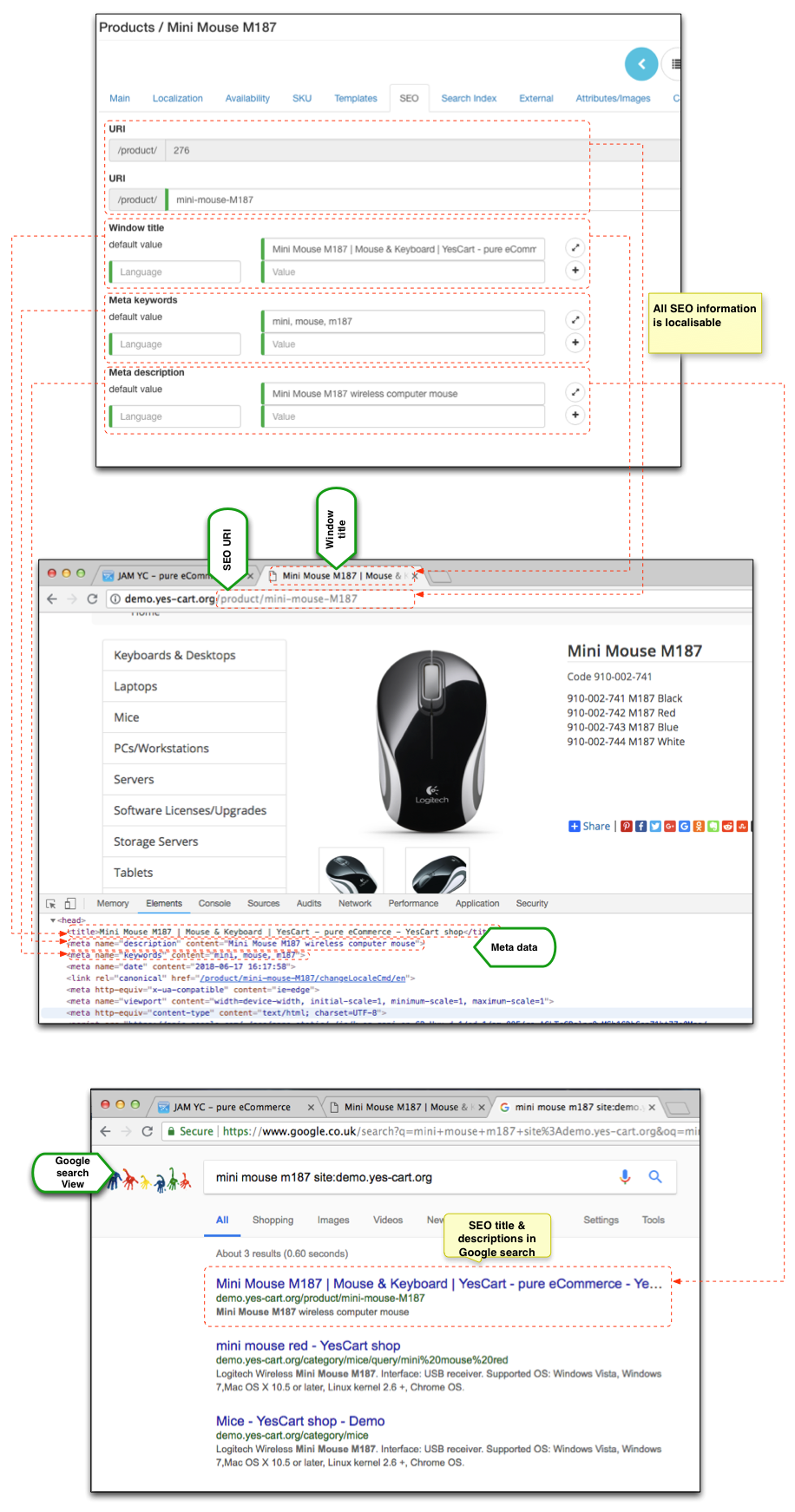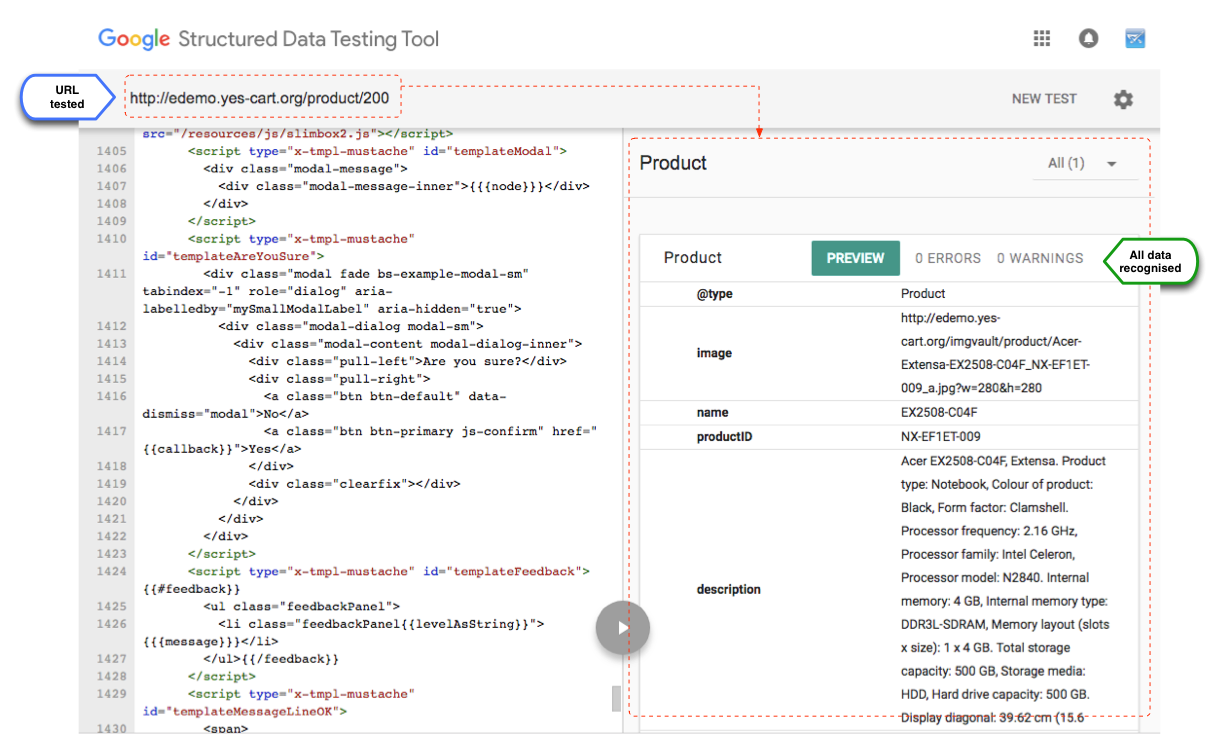Everybody knows that Search engine optimisation (SEO) is very important but what is SEO?. Apart from sounding cool and highly complex what is SEO? Well to tell you the truth it is quite simple in fact.
Lets start with the first part "search engine". Most obvious examples of these are Google Search, Yahoo, Microsoft Bing, Yandex and many others. Search engines contain information about your site and hence when user searches for some keywords or phases search engine can match those against information it has to provide web user with a link to your site. This gradually brings us to the second part - "optimisation". Optimisation is adaptation of your site to the way a particular search engine works. Therefore increasing the chances of correctly matching keywords to pages of your web site. Luckily most of the Search Engines look for clues described by best practices of HTML.
So what are the best practices?
http://yourdomain.com/category-name/product-name-and-SKU-code.html |
The more valuable keywords (such as category and product names) the URL has the more likely it is to have a better scoring value when indexed by search engine, which is what is used to push your pages to the top of the list.
This list is far from being exhaustive but the points above represent the main things that must be done correctly before anything else is attempted. Anything beyond this in fact would be a search engine specific implementations and hence are beyond the scope of this article.
Platform SEO supports three of the core recommendations above: URL customisation, titles and meta data. AJAX support is highly coupled to the layout of your particular website and hence will depend on the specific theme your shop is using. Default theme is fully compatible with AJAX recommendations.
The platform concentrates on provision of SEO to the following core objects:
YUM has standard SEO form for each of the above objects that allows to embed SEO configurations in pages rendered to the customer on the web site. Each SEO parameter is fully localisable, therefore language specific configurations can be done with ease on object per object basis.
An example SEO management for a product and how it is presented to the customer can be seen in the figure 1.
Figure 1: SEO data presentation on storefront and external systems

As can be seen in the figure there is a number of elements at play here. Some of these such as title can be clearly visible when looking at the web page, others such as description become visible on web pages outside of your website like Google's search result pages.
The following SEO friendly URL patterns are used:
All of the above patterns are mix and match to produce complex SEO friendly urls. For example "Mini mouse in category computer mice and filtered by colour red" on our demo store would look like so:
http://demo.yes-cart.org/category/mice/query/Mini%20mouse/1766/Red |
Same pattern can be observed with image handling to produce image URLs of the following form:
http://demo.yes-cart.org/imgvault/product/Logitech-M187_910-002-742_a.png?w=280&h=280 |
| For image file naming please consult bulk import for images. |
It must be noted that when setting URI properties they must be unique within scope of the SEO object. In other words categories and content must have unique URI, products must have unique URI and SKU must have unique URI.
Note that URI is optional and if left blank the platform will use internal codes for URLs instead.
Default theme automatically supports and is fully compatible with Google's structured data specification. All product elements are fully annotated with relevant product information, pricing and stock information attributes.
You can test some of the demo shop pages using this tool: https://search.google.com/structured-data/testing-tool/u/0/#url=http%3A%2F%2Fedemo.yes-cart.org%2Fproduct%2F200
